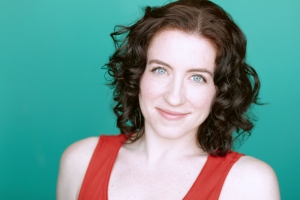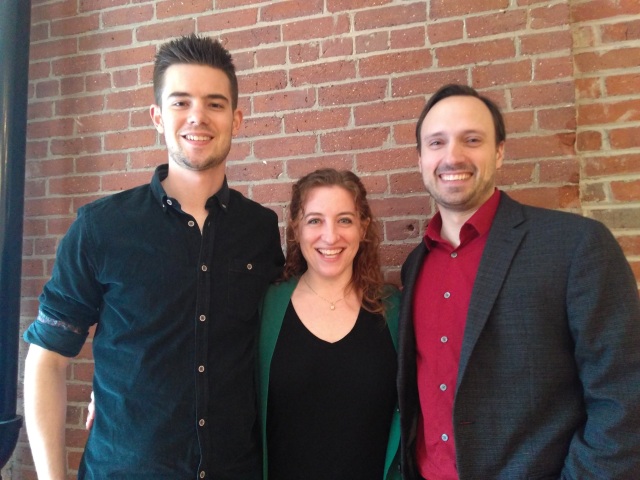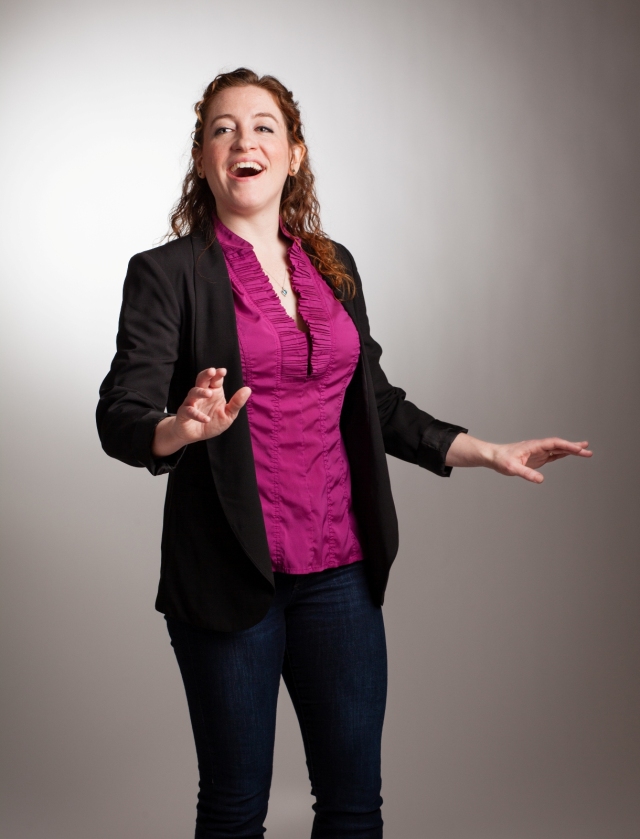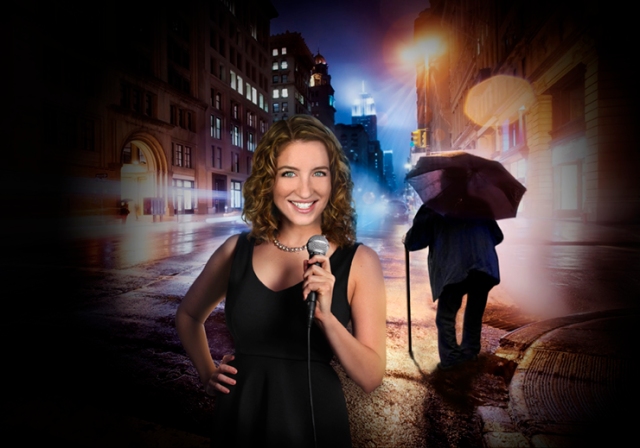Submitted by Anonymous on

Charissa Bertels is a Broadway actress and champion of new musicals. She recently toured the country in the first national tour of If/Then starring Idina Menzel, La Chanze, and Anthony Rapp. She made her Broadway debut in the original Broadway cast of Pasek & Paul’s Tony-nominated musical A Christmas Story, and later reprised her role at Madison Square Garden.
Is there an emotional idea at the core of this story?
The events of this story pushed me to realize that you can’t wait. You never know how much time you have with your friends–even the ones who aren’t 80-something years old. It pushed me to live in the moment, to take opportunities when they’re presented, and to not wait on anything.
In that way, Milton is not just the topic, but also the impetus for me making the show happen. He made me think, “What am I waiting for?” I almost missed my chance and I don’t want anyone else to miss theirs, to wait on the things they want to do or the things they want to express to the people they care about.
Was it hard to find common ground in your friendship with Milton, given the difference in generations?
We definitely have different viewpoints on certain things. He has views on women that I don’t agree with. Sometimes those things come up—but I always feel comfortable speaking my mind in the moment when I disagree. We end up having these great debates: gun control, presidents, gay marriage. There have been times where I’ve changed his mind. And he also has a deeper appreciation for some things that I feel our culture has lost as of late – for art, poetry, and things that people don’t give as much heed to nowadays.
When did you get the idea to make this into a musical?
It kicked around in my head for a long time – I met Milton in 2010, and we didn’t start writing the show until 2014.
I’d always wanted to do a one-woman show, but I didn’t want to do it about the thing most people do, which is a similar story lots of actors have: we moved to New York, and we wanted to be on Broadway. The paths are all pretty similar.
Then, a couple years after meeting Milton and telling people the stories, it hit me: an intergenerational friendship with someone who’s not your grandparent might be enough of a thing to turn into a show.
How did you find Ed and Christian, the writers?
Christian and I have been best friends for over ten years – he’s one of my favorite people on the planet. And he met Ed in New York at the BMI musical theatre writer’s workshop.
I consider myself a creator, but not a writer. I needed a partner to help me put this story into the world. I said to Christian, “I’ve had this idea kicking around in my head for years and I need you to help make it happen.” And Christian said “okay, I’m on board,” and brought Ed on too.

Do you find the songs capture the emotions you experienced?
Absolutely. The song we all keep coming back to is “The Love Left Behind.” Ed came up with this gorgeous song that captures Milton’s longing and regret so perfectly and poignantly. Which is amazing, because he never met him.
How much do you communicate with the writers?
We’ve met almost weekly. In the beginning, it was just me telling my stories, narrating things we’d done together, and basically orating all of my memories.
Then we started figuring out the “song moments.” What’s the narrative? What moments need to be musicalized and heightened? We storyboarded, breaking things down with little post-it notes and then trying to string them together into a structure to create this musical idea.
Is it weird to play yourself?
It’s only weird when you’re in rehearsal and you’re talking about yourself in the third person, as a character.
It’s fun to play yourself. Not that it’s easy—it’s not—but it’s more knowable. You know what your motivations are, why you did the things you did, and said the things you said, and felt the way you felt. You don’t have to make all of them up. But it’s also challenging because you have to be vulnerable, and really put yourself out there to show the world your flaws and insecurities.

What do you love about the stage?
I first got hooked in the 5th grade; I had this really awesome teacher Mr. Gibson, and he was super creative in the way he taught. Our class would put on plays and musicals, and I was the Hobbit in The Hobbit.
I fell in love with storytelling, and I fell in love with community–and that’s what theatre creates: a community that tells stories together. It’s the best thing. Eventually I went to college for it and made it my career, but it really is thanks to Mr. Gibson and his creative teaching. Otherwise I don’t know what I would have ended up doing.
What does it mean for you to be working at MRT?
New work is my greatest passion, and the fact that MRT focuses so much on new work is a dream come true to me. I’m super grateful that MRT audiences dig the same thing that I dig, and I’m most excited about sharing this with MRT audiences first – they deserve it, because they’ve shown that they’re interested in hearing new voices and new work.

runs April 26 – May 21. http://www.mrt.org/Boyfriend
![]()
